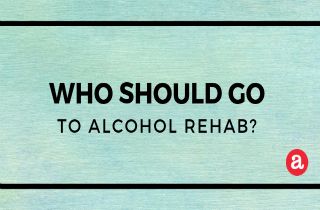Is rehab right for you?
If you’re reading this, you may be seeking help for a drinking problem. Good for you! Rehab programs are often very helpful for many people looking to overcome alcohol addiction. But should you or a loved one go to an alcohol abuse rehab program? Which kind?
Read on to find out more. Then, we invite your questions about programs for alcoholism at the end. In fact, we try to respond to all questions personally and promptly.
Who is affected by alcohol abuse?
Alcohol abuse affects everyone, from the person drinking to the family to the community that surrounds them. An individual struggling with alcohol addiction will often also suffer from physical, mental, and emotional health problems. Alcoholism will also usually have a detrimental effect on families and relationships. Widespread alcoholism can also cause widespread problems in communities, schools, and workplaces.
In the long run, everyone benefits from rehab programs. Successful alcohol rehab programs can help alcoholics learn to live without drinking, resulting in healthier, more stable, and more productive members of society. Families can also take comfort in the fact that their loved ones are no longer struggling with a drinking problems.
Who needs alcohol rehab programs?
If you aren’t quite sure if you or a loved one need help for a drinking problem, it’s imperative that you take an honest inventory of any possible signs. For instance, a physical dependence on alcohol is often a good indicator that someone needs alcohol rehab. A person is physically dependent on alcohol when their body needs it to function properly; physically dependent individuals will often experience uncomfortable withdrawal symptoms when they do not drink for several hours or a couple of days.
Alcohol abuse can also lead to a tolerance to alcohol. This means that a person needs more and more alcohol over time to feel tipsy or drunk.
Other signs that a person needs alcohol rehab include:
- blackout drinking
- drinking more than 14 drinks per week (for men)
- drinking more than 7 drinks per week (for women)
- drinking 5 or more drinks on the same occasion on each of 5 or more days in the past 30 days
- family problems caused by drinking
- financial problems
- finding excuses to drink
- hiding alcohol use
- inability to quit drinking
- legal problems caused by drinking (especially DUIs)
Going to alcohol rehab programs
Alcohol rehab programs are designed to help alcoholics life a sober life. Abstinence is often the goal, so if you’re looking to reduce drinking…you may want to look into “harm reduction” techniques taught by individual psychotherapists. Teaching methods on total abstinence from drinking is usually achieved primarily through the use of psychological treatments, such as individuals, group, and family therapy and counseling.
Inpatient alcohol rehab programs require recovering alcoholics to live in rehab centers while they go through treatment. This is usually considered to be an intensive treatment option, and inpatient rehab can last anywhere form one month to one year. Outpatient alcohol rehab programs do not require a recovering alcoholic to reside in rehab facilities. They are, however, required to attend daily or weekly therapy sessions.
Successful alcohol rehab programs turn out individuals that are no longer completely dependent on alcohol. Instead, these individuals have learned to cope with their problem’s without turning to alcohol. At best, they are able to reclaim their lives and maintain abstinence with continued support.
Reasons to go to alcohol rehab programs
For anyone who thinks that rehab might be a good option… there are a number of reasons to go to a rehab programs. Just to help you along, here are just a few of them:
- Achieving your life goals.
- Better financial security.
- Happier and calmer home life.
- Living a healthier lifestyle.
- No more horrible hangovers.
- Resolved legal troubles.
After reading these reasons to go to alcohol rehab programs, we’re sure you can come up with a few more. If you’re truly ready to make a change in your life, we also urge you to seek help for your alcohol addiction. After all, what have you got to lose?
Questions about alcohol rehab programs
Do you still have a question about the goals of expectations of rehab? Please write your question in the comments section below. We’ll do our best to help you!









Related Posts